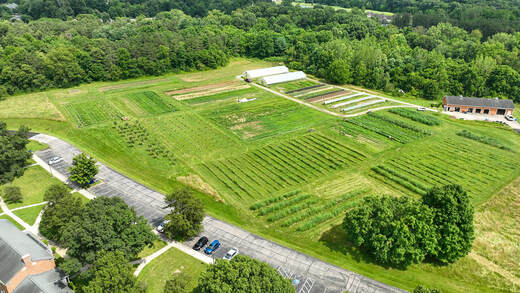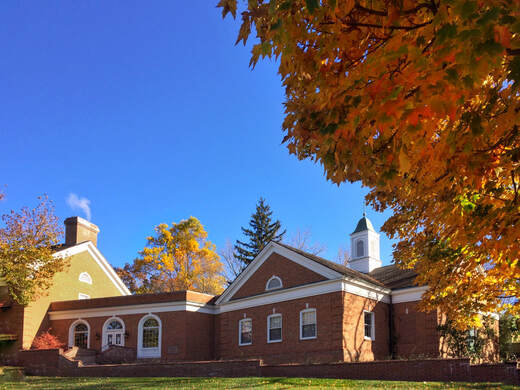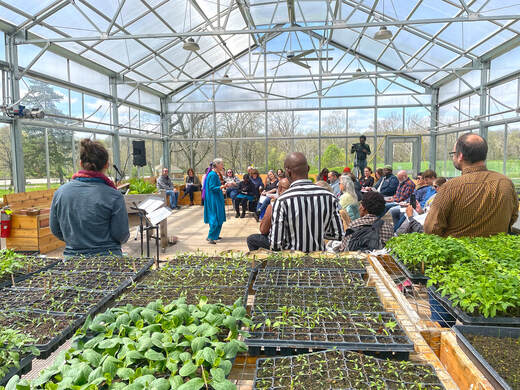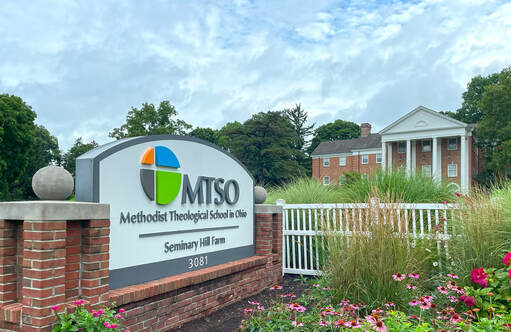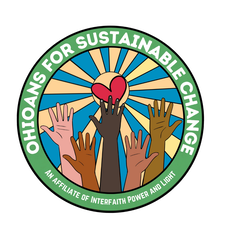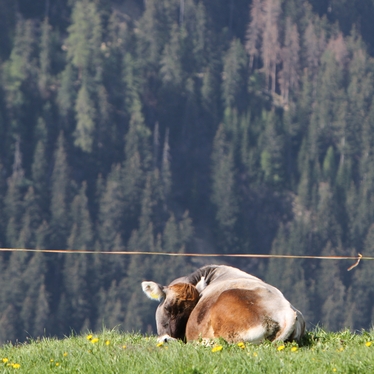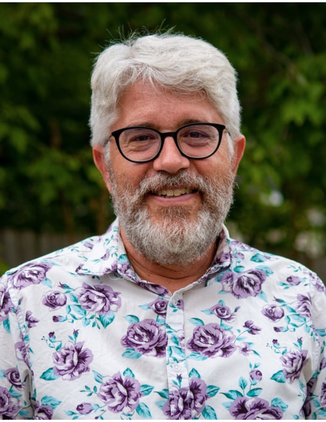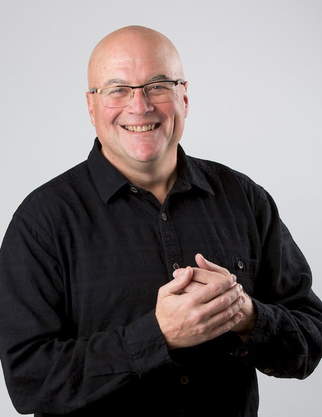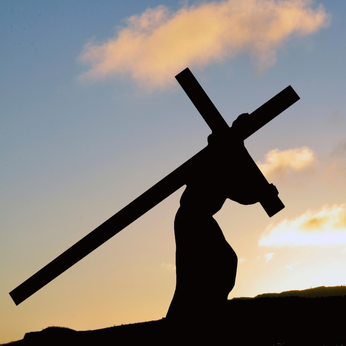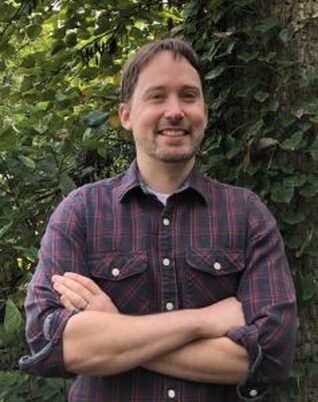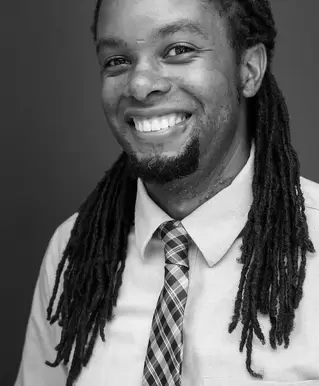A climate change training for Christian leaders.
October 16-18, 2023
Monday - Wednesday afternoon
Methodist Theological School in Ohio
In the midst of a rapidly changing climate, faith communities are called to discern how they will respond. Churches and faith-based organizations are gifted with unique resources to help communities and individuals move from anger, anxiety, and/or denial to action. They can guide us in the work of seeking justice and healing from the trauma and other harms of a broken world.
Pastors and other faith leaders in particular are able to draw upon the social, emotional, and spiritual responses to climate change that will be urgently needed in the coming years. At the same time, faith leaders have the moral authority to speak prophetically to the unequal burden that a climate-changed world will place on vulnerable communities, including communities of color.
Pastors and other faith leaders in particular are able to draw upon the social, emotional, and spiritual responses to climate change that will be urgently needed in the coming years. At the same time, faith leaders have the moral authority to speak prophetically to the unequal burden that a climate-changed world will place on vulnerable communities, including communities of color.
Join us at this retreat to cultivate your capacities to educate, lead, and empower congregations and communities in the midst of the climate crisis.
This retreat will serve to help church leaders:
This retreat will serve to help church leaders:
-To understand climate as an intersectional justice issue.
-To learn about how projects and ministries related to food justice are empowering local communities to incarnate joyful and transformative alternatives.
-To begin to approach these efforts with pastoral wisdom that acknowledges and seeks to heal the trauma that marks our communities, our ecosystems, and our own spirits.
The retreat will be held at Methodist Theological School in Ohio, a Columbus-area seminary with an 80-acre campus that is also home to Seminary Hill Farm. The campus features an abundance of natural open space for outdoor reflection and fully accessible campus buildings.
Learn more about MTSO’s location and campus facilities.
This retreat will serve to help church leaders:
This retreat will serve to help church leaders:
-To understand climate as an intersectional justice issue.
-To learn about how projects and ministries related to food justice are empowering local communities to incarnate joyful and transformative alternatives.
-To begin to approach these efforts with pastoral wisdom that acknowledges and seeks to heal the trauma that marks our communities, our ecosystems, and our own spirits.
The retreat will be held at Methodist Theological School in Ohio, a Columbus-area seminary with an 80-acre campus that is also home to Seminary Hill Farm. The campus features an abundance of natural open space for outdoor reflection and fully accessible campus buildings.
Learn more about MTSO’s location and campus facilities.
Join us to:
- Build connections with local ministry leaders and scientists to engage as faithful climate advocates.
- See how the Christian tradition can foster spiritual depth and wild hope in the midst of tragic consequences.
- Worship in ways that engage our embeddedness in nature.
- Learn how your church community can create a supportive network of activists and trauma-informed leaders engaged in climate resilience and advocacy deeply rooted in our faith
- Be in conversation with scientists about how the changing climate is altering local human and ecological realities and having disproportionate effects on vulnerable communities and ecosystems.
|
Logistics
Who is eligible?
All Christian leaders (clergy and lay) are eligible to apply. Priority will be given to those Ohio and Kentucky, may include Indiana. What is the timeline? Applications will begin to be considered September 8 on a rolling basis and final deadline will be September 24 How much does it cost? Pastor/Ministry leader: Free Lay leader who brings pastor/ministry leader: Free Lay leader/congregant: $350 Other participants: $350 **This pricing covers all expenses except travel** |
LocationMethodist Theological School in Ohio, located on 80 hillside acres in Greater Columbus. The MTSO campus is a place where church, society and scholarship intersect for the benefit of all three.
|
Sponsors:
Workshop guides:
|
Tomeka Jacobs I currently serve as Visiting Assistant Professor of Spiritual Formation and Pastoral Care at Lexington Theological Seminary. I call the displaced lands of the Cherokee, Chickasaw, Shawnee, and Osage people (Kentucky) my home. As an ordained Christian Church (Disciples of Christ) minister, I have had the privilege of working in Level 1 Trauma Centers as a Complex Care, Cardiac, Oncology and Adolescent Psychiatric Chaplain; Pastor; Research Fellow in Neuroscience and Contemplative Studies with Wellspring Institute for Neuroscience and Contemplative Wisdom with Dr. Rick Hanson; Spiritual Director; Internal Family Systems Fellow; and leader in Higher Education. On this journey I earned a Bachelor of Arts in Chemistry from the University of Louisville, a Master of Divinity from Lexington Theological Seminary, and a Doctor of Philosophy from Claremont School of Theology. My experience in spiritual and contemplative modalities draws me to spaces of deep connection, pain, and transformative possibilities. I am informed by science, as a chemist and my love for physics; neuroscience and its creative possibility in transforming our reactivities through mindfulness, contemplative, and spiritual practices; theology as spirituality is my expertise and ethos, my ethic; and I am deeply informed by artistry and story.
|
|
Betsy Taylor is Executive Director of the Livelihoods Knowledge Exchange Network (LiKEN). She has worked for community-driven development in Appalachia and South Asia -- seeking to integrate issues of health, agriculture, forestry, culture and environmental stewardship. Trained as a cultural anthropologist, her scholarly writings focus on environmental and social justice movements, democratic planning and participatory research, women's issues, the commons, democratic reclamation of academe / professions. She co-authored, with Herbert Reid, the book, Recovering the Commons: Democracy, Place, and Global Justice (University of Illinois Press, 2010). At the University of Kentucky, she served as Co‐Director of Environmental Studies, Research Director for the Appalachian Center and on the faculty of the Social Theory program. She was a research faculty member in the Appalachian Studies program at Virginia Tech. From 2012-2017, she was appointed to the steering committee of the U.S. Extractive Industries Transparency Initiative, by the Secretary of the U.S. Dept. of the Interior. She has served as chair of the Human Rights / Social Justice Committee of the Society for Applied Anthropology. In 2022, she was awarded an honorable mention Setha Low Engaged Anthropology Award for her LiKEN work. Many of her writings can be found on her website.
|
|
Derrick Weston is the Theological Education and Training Coordinator at Creation Justice Ministries. Derrick Weston is a writer, filmmaker, podcaster, speaker, and educator whose most recent work has focused on the intersection of food and faith. He is the co-host of the Food and Faith podcast and producer of Spoon, Spade, and Soul, a podcast highlighting food and land-based ministries in the Episcopal church. Additionally, he is the producer of the short film series "A Wilderness Like Eden" highlighting the work of churches engaged in food justice work. After two decades of being a pastor and community organizer, Derrick is a strong believer in the potential of local congregations to enact change in their communities. Derrick received his B.A. in film studies from the University of Pittsburgh and his Masters of Divinity from San Francisco Theological Seminary. He also has a certification in health ministry from Wesleyan Theological Seminary and was a part of the Re:Generate fellowship on food, faith, and ecology through Wake Forest Divinity School. Derrick is the co-author of the book The Just Kitchen: Invitations to Sustainability, Cooking, Connection, and Celebration and has written numerous articles for several publications. He and his wife Shannon have four children and live outside of Baltimore, Maryland.
|
|
Doug Kaufmann is a pastor and environmental activist who serves as the executive director at the Anabaptist climate Collaborative . In this role he organizes and leads pastoral and leadership retreats on climate change, helping congregations reduce their carbon footprint and engage society more broadly in climate action. He continues as a pastor of Benton Mennonite Church, Goshen, IN, a Green Patchwork congregation with Mennonite Creation Care Network. Doug first became passionate about creation care when he discovered that the Elkhart River, where they often baptize, sometimes is compromised with too much manure. Since 2005, he has led a Hoosier Riverwatch group there. The congregation, whose vision includes “pursuing God’s peace at the river,” has also led river cleanups, installed solar panels, includes recycling, and has a green group. Doug recently completed a Th.M. in theology and ecology at the University of Toronto and has a M.Div. from Anabaptist Mennonite Biblical Seminary, Elkhart, IN. He is also trained as an Indiana Master Naturalist. He previously served as a conference minister with the Indiana-Michigan Mennonite Conference.
|
|
Dr. Tim Van Meter is an Associate Professor at the Methodist Theological School in Ohio
(MTSO) where he leads ecology and justice specializations in the M.Div. MAPT, D.Min, and directs the Master of Arts in Social Justice (MASJ). He serves as the Coordinator for Ecological Initiatives, leading work on food security, community responses to climate change, agro- ecological theology, and social justice movements. He served as director for a grant from the Luce Fund for Theological Education to increase ecological literacy within theological education. In June 2023, he presented at a spirituality and sustainability conference in Assisi, Italy exploring faithful responses concerning regenerative agriculture, animals, climate change, and food sovereignty. His research interests include: how ecology is taught in theological schools, ecological practices of faith communities, and farmers’ understandings of the sacred in relationship to land and vocation. Since 2013, MTSO has established a ten-acre organic farm; refocused the dining hall to serve 85% of food from local, organic, and humane sources; installed a solar array and closed loop geothermal for primary academic buildings; and hosted multiple events exploring interfaith dialogue for ecological justice. |
|
Sarah Werner is the communications coordinator for Central District Conference (Mennonite Church USA) and pastor of Olentangy Wild Church in Columbus, Ohio. She is the author of Rooted Faith: Practices for Living Well on a Fragile Planet (http://rootedfaithpractice.com) and enjoys hiking, birding, and nature photography in her free time.
|
|
Wilson Dickinson is a theologian, minister, and organizer whose work takes place at the intersection of environmental justice and discipleship. He teaches theology and is the Director of the Doctor of Ministry and Continuing Education Programs at Lexington Theological Seminary. He is also the director of the Green Good News, an organization that educates, cultivates, and organizes Christian communities to follow the ways of justice, joy, and simplicity. His first book, Exercises in New Creation from Paul to Kierkegaard. articulates a vision for philosophical theology around the practices of the care of the self, the city, and creation. His second book, The Green Good News: Christ’s Path to Sustainable and Joyful Life, is an environmental justice reading of the Gospels. Most recently, Singing the Psalms with My Son: Praying and Parenting for a Healed Planet is a collection of theological mediations that look to the Psalms and the practices of parenting as spaces of refuge, hope, and transformation in the face of climate change. He is chair of the Christ Seminar, a collaborative research project on Christologies of the People with the Westar Institute.
Rev. Dr. Christopher Carter is a teacher, activist and researcher whose interest lies in Black, Womanist, and Environmental ethics, with a particular focus on race, food, and nonhuman animals. He is also the co-creator of Racial Resilience, an anti-racism and anti-bias program that utilizes the combined insights of contemplative practices and critical race theories.His passion for all of his work evolves out of his family's struggle to loosen the chains of systematic racism – similar to bell hooks he believes that education is the practice of freedom. At its broadest level, he believes that learning should be transformational: it should transform how the student views herself, her neighbor, and her worldview.
He earned his PhD in Religion with an Ethics & Society concentration from Claremont School of Theology. His dissertation, Eating Oppression: Food, Faith, and Liberation was the foundation for his forthcoming book The Spirit of Soul Food. Currently, he is the Assistant Professor of Theology and Religious Studies at the University of San Diego. He is also on the board of directors of Farm Forward, an anti-factory farming non-profit. Lastly, he is a commissioned Elder within the United Methodist Church. Bishop Marcia Dinkins is the Executive Director of Ohioans for Sustainable Change. Bishop Dinkins brings with her organizing experience on the national, state and local levels. She has a background in organizing on issues related to domestic violence, health and safety, education, jobs and crime. She holds three degrees: Associate of Arts (Oakland Community College); Bachelor of Arts in Interdisciplinary and Women and Gender Studies (University of Toledo) and a Master of Arts in Criminal Justice & Policy (Youngstown State University). She has taught social justice workshops at Case Western University, Bowling Green State University and at the American Baptist Churches Leadership Academy.
|
